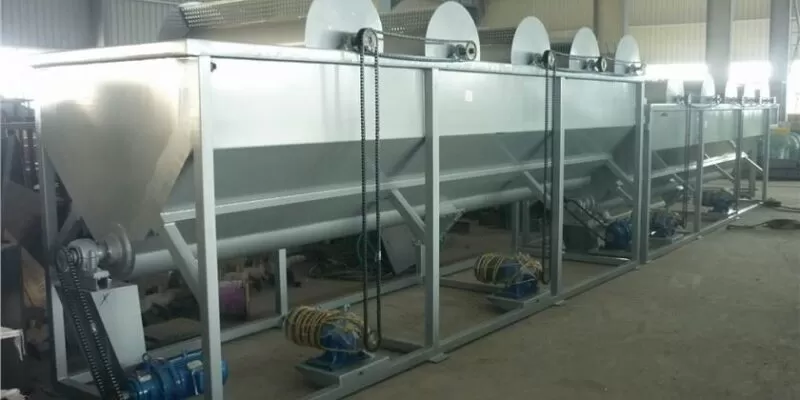Ever felt overwhelmed by the sheer volume of plastic waste we produce? It’s a colossal challenge. Traditional recycling methods are struggling to keep up, putting immense pressure on our environment and health. The future of the plastic recycling industry holds promising solutions. Let’s explore these trends and see how they can transform our world.

The future of the plastic recycling industry is full of innovation and hope. With the advent of new technologies and the growing demand for sustainability, this industry is set to evolve rapidly. From advanced recycling equipment to intelligent recycling systems, we can expect groundbreaking advancements.
This is not just about protecting the environment; it’s about seizing business opportunities. Understanding these trends can help us capitalize on future prospects and drive the industry forward.
How Will Future Technologies Impact the Plastic Recycling Industry?
The application of new technologies is key to the future development of the plastic recycling industry. With the widespread use of artificial intelligence and the Internet of Things, intelligent recycling systems will become mainstream. These systems can automatically identify and sort different types of plastics, greatly improving recycling efficiency.
For example, recycling robots based on visual recognition have already been put into use. These robots can process large amounts of waste in a short time with high accuracy and low error rates. This not only improves recycling efficiency but also reduces labor costs.
Will Biodegradable Plastics Become Mainstream?
In recent years, biodegradable plastics have garnered significant attention. These new materials can naturally decompose under certain conditions, reducing environmental pollution. Many countries have begun to formulate policies to promote the use of biodegradable plastics.
However, biodegradable plastics are not a panacea. They are more expensive to produce and still face some technical challenges in practical applications. For example, varying degradation conditions can lead to inconsistent degradation speeds, affecting recycling effectiveness.
How Will Policies and Regulations Affect the Plastic Recycling Industry?
Policies and regulations play a crucial role in the development of the plastic recycling industry. Many countries have introduced measures to encourage plastic recycling and reuse. For instance, the EU plans to achieve full recyclability of all plastic packaging by 2030.
These policies not only help reduce plastic pollution but also promote technological innovation and market expansion in the recycling industry. For businesses, understanding and complying with these regulations is vital, as it helps them stay competitive and compliant.
How Can Companies Adapt to Future Plastic Recycling Trends?
For companies, adapting to future plastic recycling trends is essential. First, they need to invest in new technologies and equipment to improve recycling efficiency and quality. Second, they should actively participate in the development of industry standards and the promotion of policies.
Moreover, companies should focus on building their brand image by promoting environmental concepts and practices, gaining consumer trust and support. In the future, environmental friendliness will be a key factor for consumers when choosing products. Companies must align with this trend to gain a competitive edge in the market.
How Significant Is International Cooperation in Plastic Recycling?
Plastic pollution is a global issue that requires a collective effort. International cooperation plays a significant role in the plastic recycling industry. For instance, through technology exchanges and resource sharing, different countries can learn from each other’s successful experiences, enhancing overall recycling efficiency.
Additionally, international cooperation can promote the establishment of global unified standards, reducing barriers in cross-border trade. For businesses, actively participating in international cooperation can expand their markets and enhance their technological capabilities and competitiveness.
How Do Education and Public Awareness Impact the Future of Plastic Recycling?
Education and public awareness are crucial in plastic recycling. By enhancing publicity and education, we can raise public environmental awareness, encouraging more people to participate in plastic recycling. For example, community activities and school education can spread recycling knowledge and inspire public enthusiasm for environmental protection.
Only when everyone recognizes the importance of plastic recycling and takes practical actions can we truly solve the plastic pollution problem. Businesses, governments, and the public need to work together to promote the development of the plastic recycling industry.
Conclusion
The future of the plastic recycling industry is full of challenges and opportunities. Through technological innovation, policy support, international cooperation, and public participation, we have reason to believe that the plastic recycling industry will make significant breakthroughs in the future. Let’s work together to create a cleaner and more sustainable future.
That’s my view on the future trends of the plastic recycling industry. As the CEO of Amige, I am confident that we will lead the industry towards a brighter future.
